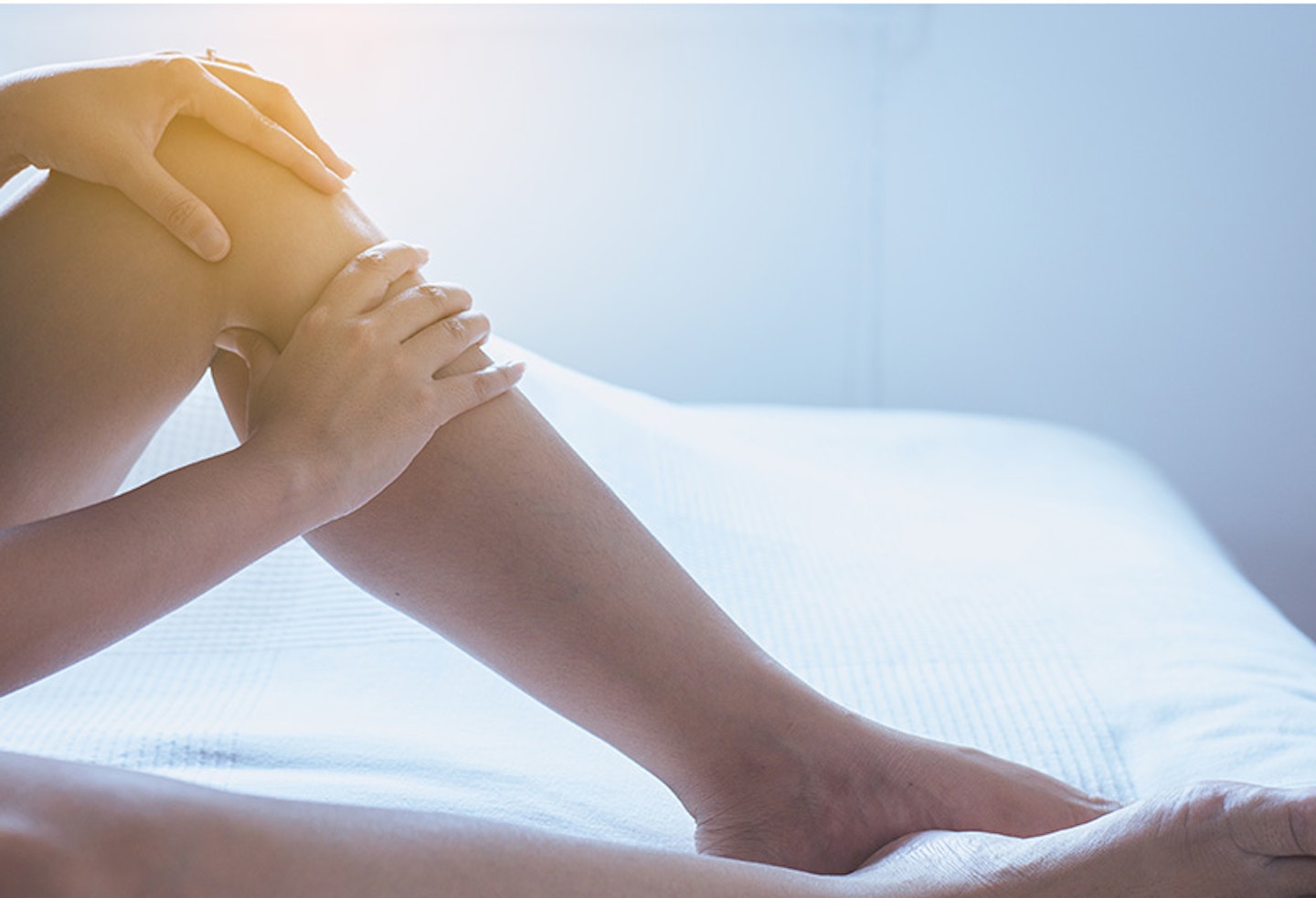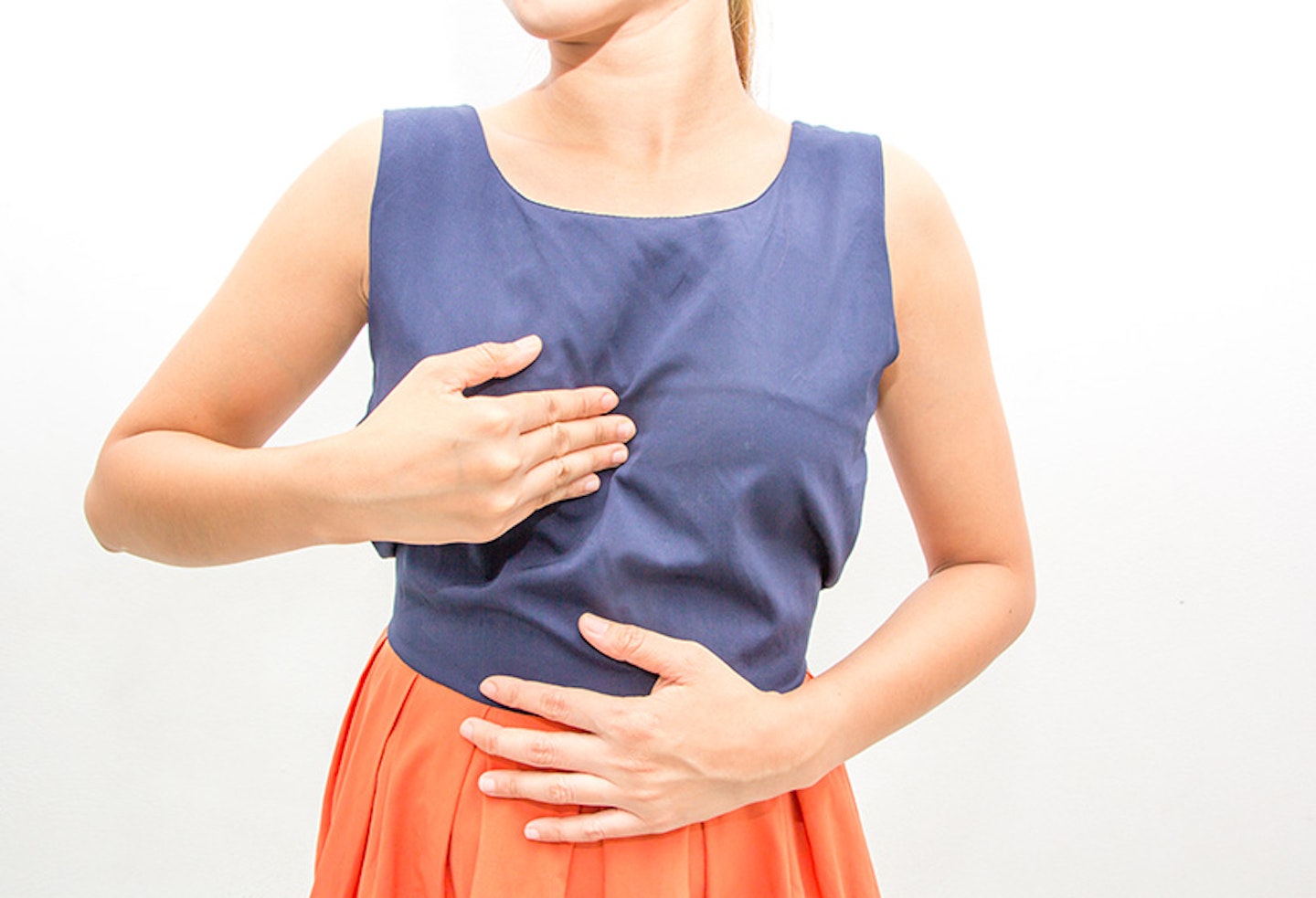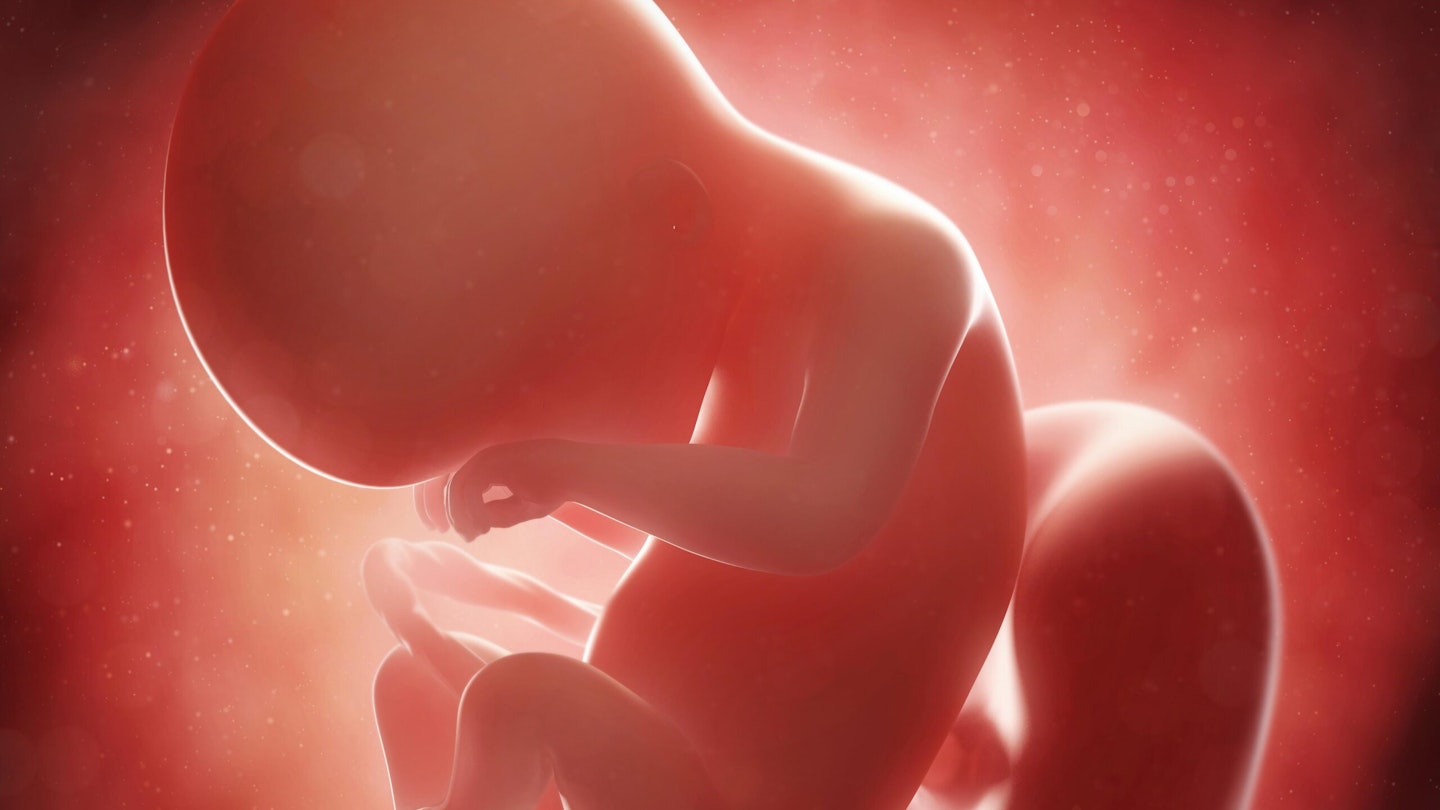At eighteen weeks pregnant your baby is now big enough that in the next few weeks, you’ll feel them twisting, rolling, kicking and punching. Here’s what your baby and your body are doing at 18 weeks pregnant and any symptoms you can expect this week.
How big is my baby at 18 weeks pregnant?
Your baby is about five and a half inches long this week and weighs somewhere between five to six and a half ounces.

What’s my baby doing at 18 weeks pregnant?
This week your baby will learn how to yawn and hiccup – something you might start feeling soon! Your baby’s nervous system is also maturing rapidly and her nerves are now forming complex connections. Your baby’s hearing is now getting more acute, which means now is a good time to start talking and signing to your growing bump!
7 common symptoms to look out for at 18 weeks pregnant:
 1 of 7
1 of 71) Edema
A fancy word to describe the swelling in your feet and ankles that often happens during pregnancy. If your feet and legs look like you’ve just got off a long-haul flight, do not panic, this is simply a sign your body tissues are accumulating fluid to support your baby. You can reduce the water tension in your feet and lower legs by avoiding standing or sitting for too long, and keeping your feet up whenever you can.
 2 of 7
2 of 72) Trouble sleeping/insomnia
Last week we mentioned weird dreams and now you might struggle to sleep at all! Your mind is preoccupied with everything going on in your life and your body plus you are growing and probably getting more uncomfortable due to the other unwelcome side effects. This can really effect your sleep. Try a relaxing night-time tea and make sure you have a comfortable pillow to sleep with.
 3 of 7
3 of 73) Heartburn or indigestion
This is surely the most persistent and irritating symptom of pregnancy! It has appeared nearly every single week! As those hormones loosen the muscle connecting your stomach to your windpipe, acid can regurgitate up, causing a burning sensation in your chest. Unfortunately, it will continue to get worse as your bump gets bigger. Check out these five ways to try and beat pregnancy indigestion.
 4 of 7
4 of 74) Movement of your baby
Finally a positive symptom! A very exciting feeling, if you’ve experienced weird rumblings in your tummy the past few days, it’s not something you’ve eaten, but your baby moving around the womb. Don’t worry if you haven’t felt anything yet, it might take a few weeks for you to start feeling those first kicks.
 5 of 7
5 of 75) Bleeding gums
Around half of mums-to-be will experience bleeding gums during pregnancy thanks to those pesky hormones. It’s nothing to worry about, but it’s really important to look after your teeth and gums during pregnancy.
 6 of 7
6 of 76) Backache
The movement of your uterus is also putting pressure on your lower back, which means backache is a common side effect from now on.
 7 of 7
7 of 77) Leg cramp
If you’re finding yourself being woken up at night with shooting pains in your claves, rest assured this is also normal. Experts aren’t sure what causes this, but recommend trying calf stretches before bed to alleviate the symptoms. Cramping can also be a sign of dehydration - so drink up!
What is my body doing at 18 weeks pregnant?
By now your uterus has moved up into position and has grown to about the size of a cantaloupe melon. In fact, you’ll probably be able to feel it about one and a half inches below your belly button.
Last week we spoke about the pregnancy hormone relaxin, which is continuing to work around your body this week, relaxing all your ligaments and loosening your joints. Reduce those aches and pains by sitting down with your feet up, or taking a long warm bath.
Your week 18 FAQ’s answered:
Can I expect to feel movement at 18 weeks?
Feeling your baby move is one of the most special parts of pregnancy, yet it can raise a lot of questions – is my baby moving too much or not enough? There’s a wide range in what is normal, and movement varies from baby to baby. Most women will feel the first movements, known as quickening, between 14 and 26 weeks.
What if I can’t feel movement at 18 weeks?
Do not panic, every baby is different and if you don’t feel any movement this week, it is not a sign that anything is wrong. The position of the placenta can also affect how much movement you feel at this stage – if it’s facing the front (medically referred to as an anterior placenta) these early movements can be muffled and you might have to wait a few more weeks.
What did you notice at 18 weeks pregnant? Let us know on Facebook or Twitter!
Make sure you're following Mother & Baby on Instagram for relatable memes, inspiring stories and parenting hacks!
Have approx 60 seconds to spare? Why not join thousands of mums-to-be and start your very own Amazon baby wish list! They're absolutely free to create and perfect to send to the friends, aunties and your mum to make sure you're getting the baby products you really need...Click here!
